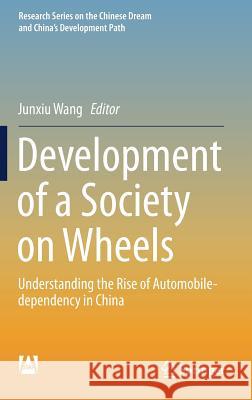Development of a Society on Wheels: Understanding the Rise of Automobile-Dependency in China » książka
topmenu
Development of a Society on Wheels: Understanding the Rise of Automobile-Dependency in China
ISBN-13: 9789811322693 / Angielski / Twarda / 2018 / 307 str.
Using quantitative research, this volume investigates the characteristics, problems and trends of the automobile society in China's mega cities and large cities.











